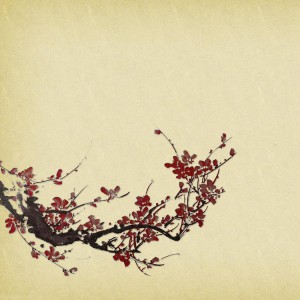
About Japan
Japan
Japan (in Japanese Nihon or Nippon (kanzi-日本), officially–Nihon-koku or Nippon koku (kanzi-日本国), literally–the Country of Japan) is an island-country in East Asia. The Nippon variant is often used as an official form on the stamps and banknotes, while the Nihon variant is mainly used in everyday life. The Japanese call themselves Nihondzin (in Japanese-日本人), and the language-Nihongo (in Japanese-日本語). Nihon literally means “the motherland of sun”, and from here comes the name “Country of the Rising Sun”. Until the 700-ies the country was called “Yamato” (in Japanese-大和). Japan is located in the Pacific Ocean, in the East from the Japanese Sea, North and South Korea, China and Russia; in the North it crosses the sea of Okhotsk, in the South the East-China Sea and Taiwan. The country is situated on the Japanese archipelago, which in its turn consists of 6852 islands. 97 % of the archipelagos make the four biggest islands– Honshu, Hokkaido, Kyushu, Sikoku. People have inhabited here in the era of late paleolit. The first written record about Japan is in the Chinese historical record of the 1st century. Japan is a developed country, it has a developed economy. According to the UN data Japan is in the third place of the lowest neonatal mortality rate in the world. Japanese are also famous for the rate of longevity. Here the average age of mortality for women is 77, 9 and for men–85, 1 (according to the UN data 2003).
REGIMEN
Japan is a limited monarchy; the main law is the Constitution that entered into force in May 1947. Since May 3, 1947 there haven’t been made any changes in the Constitution of Japan. The Constitution is also called “Pacifistic (peace-loving) Constitution”, as the 9th article states the provision of not starting war and not initiating martial confrontation. Here the power is divided into three branches: legislative, executive and judicial. The legislative body is the Parliament, the executive-the cabinet of ministers and local self-governing bodies, and the judicial are the Supreme and Regional Courts. The highest body of power is the Parliament, the official head of which is the emperor of Japan, while the actual head is the Prime Minister, who is also the head of the Cabinet of Ministers. Japan is a representational democratic country. The citizens take part in the governing of the country by means of participating in the elections of the mayor, deputy of the local counsel or the Parliament. Citizens of Japan who are above 20 have the right of election. The Parliament is made of two parties–the Democratic Party and the Liberal-Democratic Party. According to the Constitution the emperor is “the symbol of unity of Japanese state and Japanese nation”. In fact he cannot govern the country. He only takes part in the rituals. Nowadays 125th emperor of Japan is Akihito.
THE ECOSYSTEM
After the Second World War the attention in the sphere of nature protection decreased, in the result of which the environment became too polluted during 1950-60-ies. In 1970 there was adopted the legislation of nature protection and in 1971 there was established the office for the protection of the environment. The current important problems of nature protection are pollution of urban air, recycling of wastes, nature protection, climatic changes, as well as international cooperation for the environment. On March 11, 2011 because of the big earthquake in Fukushima there was a leakage of radiation from nuclear power station “Fukushima 1”, in the result of which the level of radiation here is 8 times higher from the usual level.
POPULATION
The population of Japan makes 127, 3 people, of which approximately 80 % are city dwellers, 98.5% of the population are native Japanese: Koreans, Chinese, Filipinos, Japanese-Brazilians and Japanese-Peruvians make the ethnic minority. The majority of the population speaks Japanese. There are many words in Japanese that are borrowed from Chinese-49.1%, true Japanese words make the 33.8 percent of the language and the remained 8.8% are words that are borrowed from other languages. 83.9% of Japanese profess Shintoism, 71.4% – Buddhism, there are also people who profess the two religions together.
ECONOMY
Japan is considered to be the third country in the world with developed economy after the USA and China. Japanese also get the highest salary per hour. Here the rate of unemployment is also low. The big Japanese companies are Nintendo, Toyota, Canon, Honda, Sony, Mitsubishi, Sharp, Nippon oil and others. In 2006 326 Japanese companies were included in the list of Forbes 2000, which makes 16.3% of the total number of companies.
THE CULTURAL HERITAGE OF JAPAN
Approximately 20 percent of the cultural heritage make temples and castles. These are the Himeji castle, the Matsumoto castle, Inuyama castle and Hikone castle, as well as 16 towers. The cathedrals are Horyu-ji and Todai-ji (the biggest wooden building in the world). Valuable cultural heritage are the ancient manuscripts and documents, traditional swords, furniture, as well as thousands of pictures and sculptures.
Monetary unit: Yen (¥)
Internet domain: .jp
Telephone Code: +81
Time zone +9 (UTC)
the material is taken from http://nipponnitsuite.wordpress.com/japan/
translated from Armenian into English by M.Vardanyan









